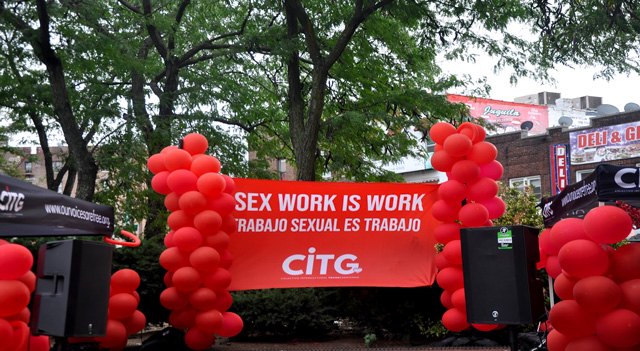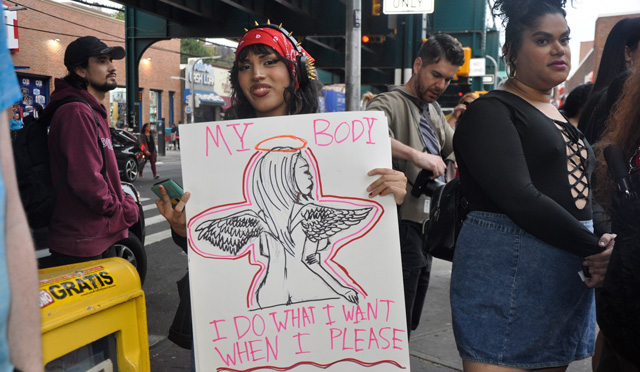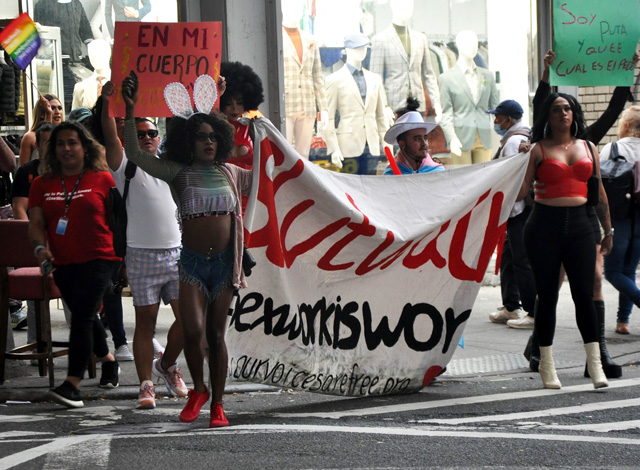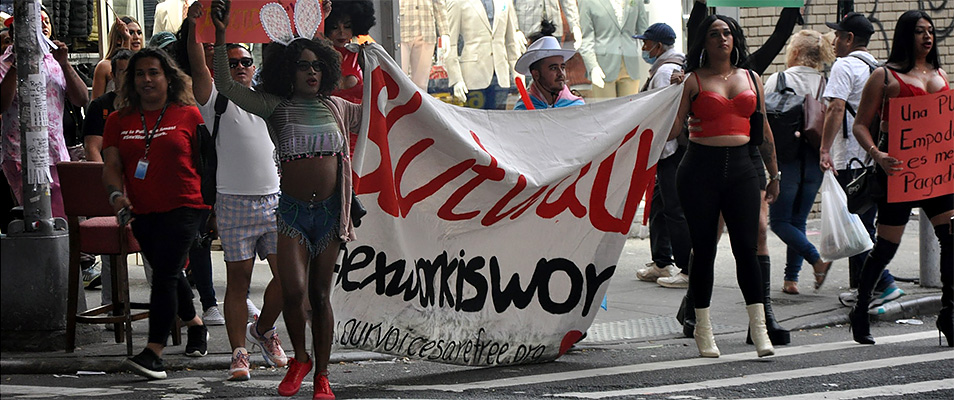By Julien Torres
On a dreary Friday afternoon, sex workers filled the streets of Roosevelt Avenue, Queens, chanting and waving large signs to bring awareness about the sex industry in New York City and its stigmas.
The demonstration occurred months after the New York City Council approved a local law to create a sex worker opportunity program, an initiative aimed at protecting former and current sex workers. It protects sex workers from housing discrimination, unfair work practices, occupation confidentiality, and discrimination in child services cases.

Decriminalize Sexwork, a national sex-worker-rights organization says prostitution arrests primarily target women and people of color. “In 2019, the enforcement of crimes explicitly involving prostitution, including loitering for the purpose of engaging in a prostitution offense, resulted in the arrest of female-identified individuals 97% of the time.” The group says people of color were 90% of those arrests. “In the last 10 years, 90% of individuals arrests for patronizing a prostitute in the third degree were Black, Indigenous, and people of color (BIPOC), despite the fact that national studies report between 80% and 85% of sex buyers are white men.” These statistics, provided in a press release from the organization, were echoed by many of those that attended Slutwalk NYC such as .Laura Martinez, a Latinx sex worker from Jackson Heights, Queens.

Martinez was one of the demonstrators and the grand marshal of the protest. She described her experience as a trans sex worker. “It’s changed a lot, of course, it’s changed a lot,” Martinez said. “I got into this business because I got tired of working in kitchens. I was denied a lot of jobs because I was a trans woman, I wasn’t allowed to have office jobs.”
Martinez said she was marching against mistreatment but didn’t want to see sex work legalized because she feared it would encourage corporate control of the industry, which could jeopardize worker independence. “We don’t want to be penalized to be sex workers,” she said. “We would welcome regulations. We don’t want authorities to be violent against us or to mistreat us.”

Dozens of Martinez’s fellow trans sex workers spoke about what they have gone through as a community and what they believe could be a solution to their community’s problems. Their biggest hope, they said, is to destigmatize sex work and the sex industry as a whole. Sex workers pay taxes like everyone, they said. Unlike Nevada where sex workers pay taxes, some of the attendees said they set up limited partnerships as businesses, service companies that sell cleaning, nanny or dog walking.



